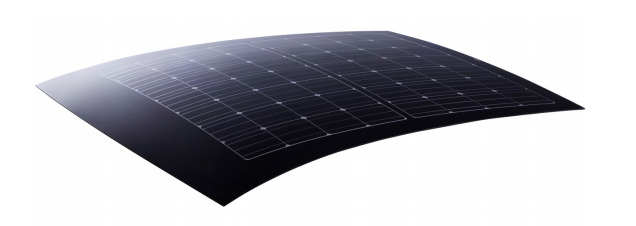“Electrical energy generated from solar cells can be applied to the charging of driving power sources,” Panasonic said in an emailed statement.
While the first generation of Prius PHV vehicles included solar an option, their use was limited to auxiliary charging of specific components, including 12-volt batteries.
However, Panasonic’s panels for the 2017 Prius PHV can extend the distance that the vehicle can travel, while increasing fuel efficiency.
Panasonic’s HIT solar modules — a variation on the panels the company supplies to Japan’s residential rooftop solar market — feature a silicon substrate covered with an amorphous silicon film.
“When photovoltaic modules are mounted on a vehicle, output decreases as much or more than it does when they are mounted on residential roofs,” Panasonic said, claiming that its heterojunction solar cells minimize output declines because they are smaller than standard PV cells.
In the past, the output of automotive solar cells has generally maxed out at several tens of watts, the company said.
But it claims that the HIT modules for the Prius can generate sufficient power under high temperatures in a confined space.
“These features are optimal for automotive photovoltaic modules,” it said.
The laminated modules are also curved to match the body design of the vehicles.
“The gradual curve design is applied to the overall roof, creating a complex structure made of three-dimensional curves from the windshield and pillars to around the hood,” Panasonic said. “The development of this technology enabled the practical use of automotive modules.”
The Osaka-based electronics group is also supplying its automotive prismatic lithium-ion batteries for the vehicle’s drive batteries, as it has since 2012.
The 2017 Prius (PHV) is the first commercially available, mass-produced passenger car to feature an optional solar system to charge drive lithium-ion batteries.
Panasonic said that in the future, it aims to expand automotive applications for its HIT modules.
This content is protected by copyright and may not be reused. If you want to cooperate with us and would like to reuse some of our content, please contact: editors@pv-magazine.com.



Awesome idea!
It’s is a good idea! Thanks so much!